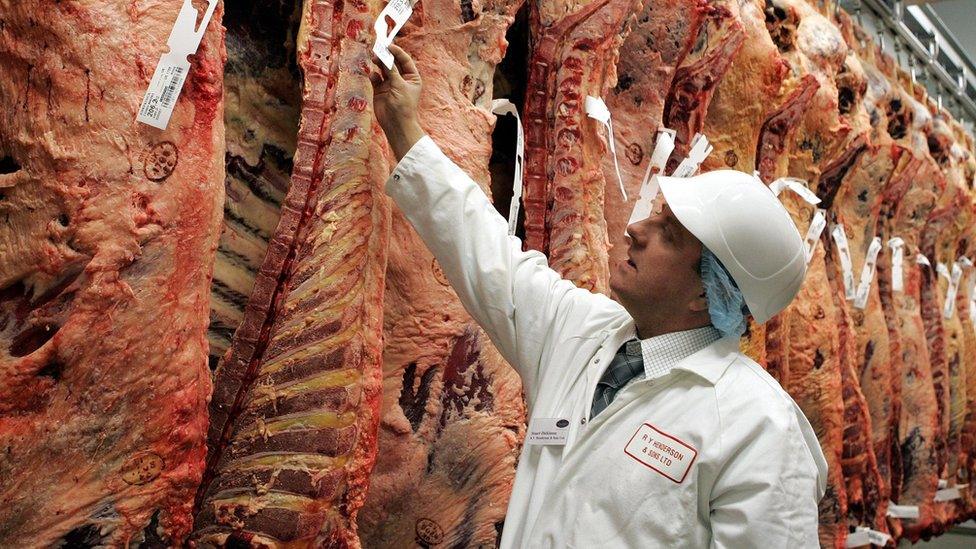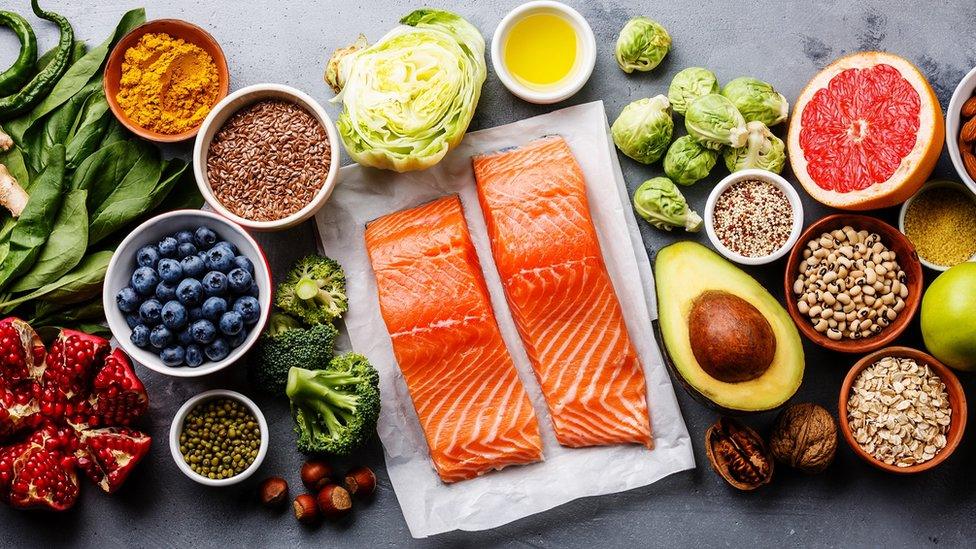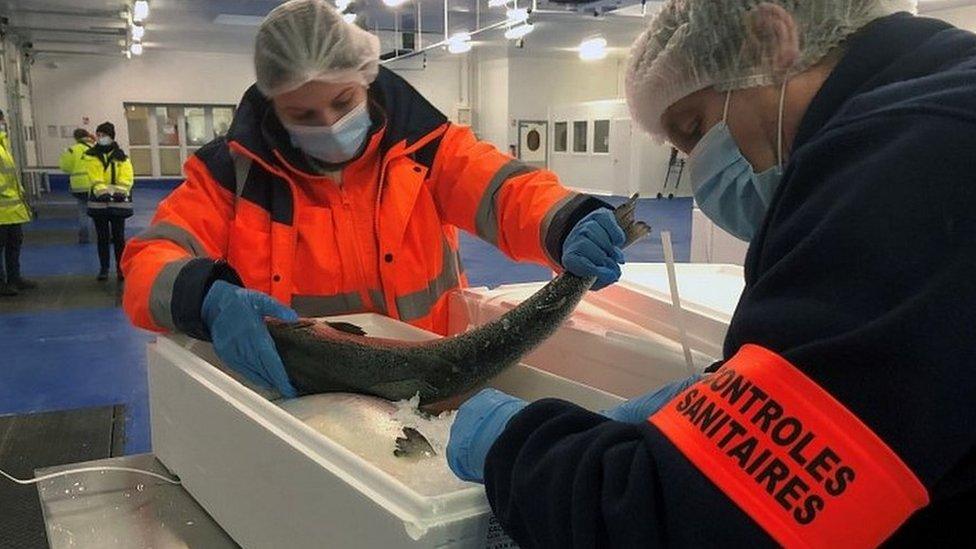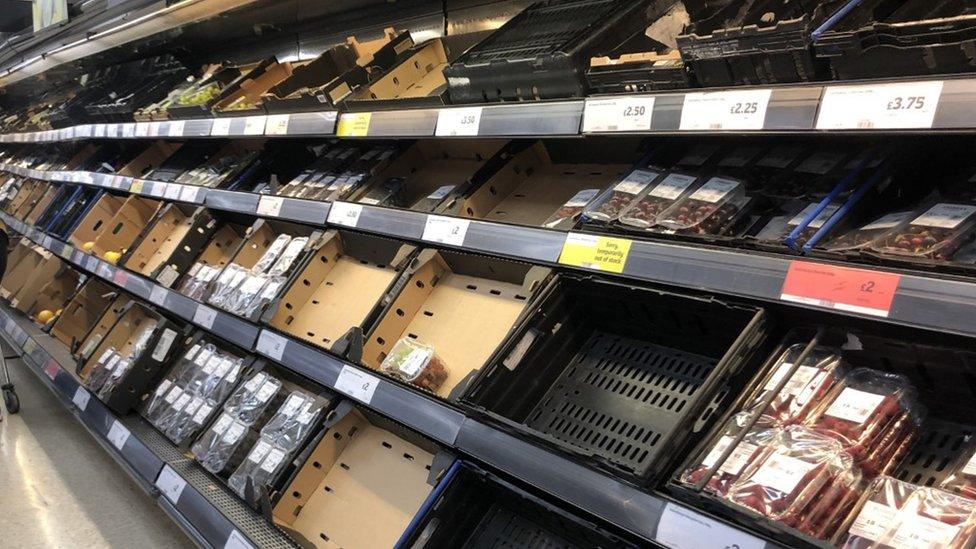Brexit: 'My meat shipment is rotting in Rotterdam'
- Published

Tony Hale has five containers of pork sitting at Rotterdam port that is now "rotten".
"We've not been able to move it on," says the boss of London-based DH Foods, "so it's going to have to be destroyed."
His containers are caught up in delivery delays to the EU caused by new Brexit paperwork. Across the UK, exporters have been reporting hold-ups due to new trade deal rules.
And there are signs, according to meat exporters, that customers are starting to go elsewhere for their supplies.
Mr Hale says he can't bring his containers back from Rotterdam to the UK because "we don't have the right forms to do so".
Overall, he says he has lost 30 tonnes of pork exported to the EU, and it will cost the business tens of thousands of pounds.
He says new systems brought in since the turn of the year are the cause of the hold-ups. "We are having to produce a load more new documents that go with the produce.
"Every detail is being analysed on these forms by border officials [in the EU]. If the destination doesn't agree with every little point, or the wording is wrong, they are not accepting the stuff and it causes products to get stuck."
He says that vets around the UK, who have to approve the forms, "often have their own interpretation of how to fill them in and they can make mistakes".
Fresh meat is perishable, with a time limit of a maximum of five days to get it to its destination, he says. If the meat gets held up an exporter may have to dispose of it.
However, despite the business being out of pocket, Mr Hale says he is an optimist - he is sure that the border situation will improve, and that there will be new trade opportunities due to Brexit.

There are a growing number of meat companies having problems at the borders, according to industry body the British Meat Processors Association (BMPA).
Nick Allen, its chief executive, says that UK meat exporters are starting to lose customers due to the delays.
"If people think they can find the meat somewhere else they will," he says. "If France sees they aren't being supplied with lamb by the UK then they can get it from Romania or New Zealand. It is already starting to happen."
'Complex forms'
One of the problems with the post-Brexit transition paperwork is that it is paper-based, the BMPA says.
"Longer term we have a system that is not fit for purpose," he says. "If we want to actually continue supplying the EU then we have to improve this system or we will have to limit the type of meat we can export. That lowers the margin and exports jobs as well."
All UK meat exporters now need to fill in an export health certificate that shows that the product is free from disease. An official vet has to sign that and say this meat meets the requirements that come with the export certificate.
But these forms "are very complex," he says. "There is one generic form and the vet has to cross things out. It is easy for them to make mistakes."
"At the moment we are waving things through [on the UK side], so all the pain is on our side of the channel. In six months' time we will have our border controls in place, and if this isn't resolved firms in the EU exporting to us are likely to have the same problems."
A UK government spokesperson said: "We've always been clear that there would be new processes for traders, and we continue to support them in their transition to these new arrangements.
"We are working closely with British meat processors to ensure they can take advantage of the opportunities and changes being outside the single market and customs union will bring, and overall businesses are adjusting well to the new rules and continue to trade effectively."
Food businesses that suffered delays this year include seafood exporters, who held demonstrations in central London this week, saying that their livelihoods were at risk.
Earlier this month supermarkets in Northern Ireland called for action over disruption to food supplies.
Related topics
- Published20 January 2021

- Published18 January 2021

- Published15 January 2021
- Published12 January 2021
